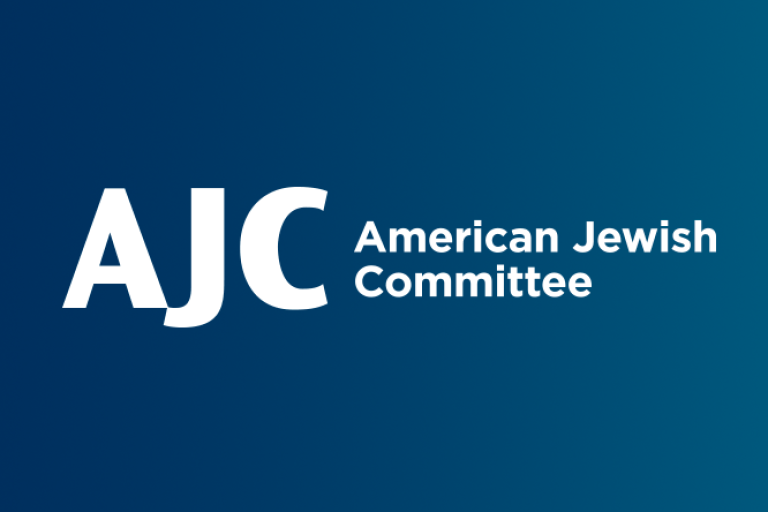July 7, 2016 — Washington, D.C.
AJC will open a new Central Europe Office headquartered in Warsaw, Poland. AJC CEO David Harris announced expansion of the global Jewish advocacy organization’s presence in Europe during the AJC Global Forum 2016 in Washington, D.C.
“Establishing a permanent office in Warsaw builds upon decades of programming initiatives, marks AJC’s formal return to Poland, and enables us to deepen our engagement with other significant countries in the region,” said Harris. “This is a step we have long wanted to take. Now it has become possible, thanks to the generosity and vision of John Shapiro and his wife, Dr. Shonni Silverberg, and we couldn’t be more delighted.”
It will be AJC’s fifth office in Europe, and is dedicated to seven Central European countries—the Czech Republic, Estonia, Hungary, Latvia, Lithuania, Poland, and Slovakia. AJC currently maintains offices in Berlin, Brussels, Paris, and Rome. AJC Central Europe will be an integral part of the Paris-based AJC Europe.
AJC’s international outreach has expanded dramatically since 1990. It has been one of the most active non-governmental organizations promoting democratic transformation in Central and Eastern Europe since 1989. Apropos, Czech Republic President Vaclav Havel told a White House lunch in 1998, hosted by President Bill Clinton, that AJC, together with two (non-Jewish) non-governmental organizations, “substantially contributed to the creation of an order of security and peace in Europe.”
AJC’s engagement with Poland dates back to the early 1980s, with its support for the Solidarity movement. Shortly after the fall of Poland’s communist regime in 1989, AJC established a presence in Warsaw. Stanislaw Krajewksi, a prominent Polish Jew and interfaith activist, served as AJC’s Representative in Poland from 1992 until 2009, when the office was closed for budgetary reasons.
“We have sought to help world Jewry understand the evolution of Poland into a dynamic and open society, where a small but proud Jewish community is rebuilding itself against the backdrop of the Nazi annihilation of three million Polish Jews – and three million non-Jewish Poles,” Harris said. “We also wish to help Poles understand the vibrancy and diversity of contemporary Jewish life around the world, including in Israel. Moreover, we wish to add another dimension to our efforts to advance U.S. ties with the countries of Central Europe, all of whom are NATO members and understandably attach great significance to their ties with Washington.”
Among the highlights of the relationship have been: AJC's support for the Solidarity movement that transformed Poland into a western-oriented, democratic country; AJC's partnership with the Polish government in memorializing the site, in 2004, of the Nazi death camp in Belzec, where 500,000 Jews were murdered; and AJC's testimony before the U.S. Senate Foreign Relations Committee in 1997 in support of the admission of Poland, as well as the Czech Republic and Hungary, to NATO. At the time, AJC's testimony was called "tremendously effective and compelling" by Jeremy Rosner, then-Special Advisor to the President and Secretary of State for NATO Enlargement Ratification.
AJC, together with our highly-regarded Polish partner, the Forum For Dialogue Among the Nations, launched a pioneering annual exchange program in 1995 to deepen understanding between Poles and American Jews. To date, more than 400 people have participated in the week-long initiative.
Opening AJC Central Europe will also formalize AJC’s ongoing, evolving relations with other countries that once were behind the Iron Curtain or involuntarily incorporated into the USSR. AJC leaders have visited Central European countries regularly, most recently in January, when an AJC delegation traveled to Estonia, Latvia, and Lithuania.
In August 1991, AJC was the first, and perhaps only, Jewish organization to call on U.S. President George H.W. Bush to recognize the reestablishment of independence for Estonia, Latvia, and Lithuania, which he did shortly afterward. AJC later helped lead the effort to support the expansion of NATO membership to the three Baltic nations, and welcomed their full integration into the EU in 2004.
Underscoring AJC’s role in the region, Estonian President Toomas Hendrik Ilves recently said, “Estonia will not forget AJC’s unique contribution to re-establishing our independence and your support for our NATO accession.”
Harris was honored in 2005 with one of Poland’s highest medals bestowed on foreigners, the Commander’s Cross of Merit with Stars, in recognition of his “commitment to peace and reconciliation and friendship with Poland and the Polish people.” In 2007, he received Latvia’s highest honor, The Order of the Three Stars – Commander Class, for his “contribution to facilitating cooperation between the Republic of Latvia and the United States of America.”
In addition, Rabbi Andrew Baker, AJC’s Director of International Jewish Affairs, was honored by the governments of Latvia in 2007 and Lithuania in 2006 and, again, in 2012. He also has served on official commissions, established by the Czech Republic, Lithuania, and Slovakia, to address Holocaust restitution and education issues.
AJC, with headquarters in New York, and an office in Washington, D.C., currently maintains 22 regional offices across the U.S., 11 posts (including our Warsaw-based office) worldwide, and 32 international association agreements, among them with the Federation of Jewish Communities (Czech Republic), Jewish Community of Estonia, Jewish Community of Latvia, Jewish Community of Lithuania, Union of Jewish Communities in Poland, and Union of Jewish Religious Communities (Slovak Republic).


